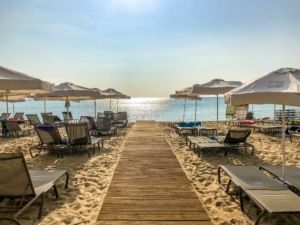News
Denmark discourages travel to Bulgaria
This article is more than 5 years old.
Denmark warns against unnecessary travel to Bulgaria due to coronavirus cases but opens up to more Swedish regions

The Ministry of Foreign Affairs discourages all unnecessary travel to Bulgaria (photo: Pixabay/nextvoyage)
People in Denmark looking to head to the Bulgarian resorts of Sunny Beach and Golden Sands for the holidays may have to rethink their plans as the government warned against travel to the Balkan country.
The Ministry of Foreign Affairs on Thursday discouraged all unnecessary travel to Bulgaria due to an excessive number of coronavirus infections. The announcement was part of the ministry’s weekly travel guidelines update as it monitors COVID-19 cases in the rest of the world.
Bulgaria joins Luxembourg, Portugal and Sweden in Denmark’s list of countries where travel is advised against. Denmark also discourages unnecessary travel to Ireland due to its quarantine rules.
More Swedish regions open
Despite the inclusion of Sweden in the list, Denmark has eased travel restrictions to more of the Scandinavian nation’s regions. Twelve Swedish regions are now approved while travel to nine other regions is still discouraged.
Denmark now allows travel to the Swedish regions of Jämtlad Härjedalen, Sörmland, Uppsala, Örebro and Östergötland.
They join other Swedish regions Blekinge, Halland, Kalmar, Kronoberg, Skåne, Värmland and Västerbotten, which were previously approved in Denmark’s list.
Spain’s Aragon region
The ministry said that people traveling to Denmark after a stay in Spain’s Aragon region are encouraged to be tested for COVID-19 upon arrival in the Nordic nation.
This is because the region now has more than 50 new cases of infection per 100,000 inhabitants per week.










































